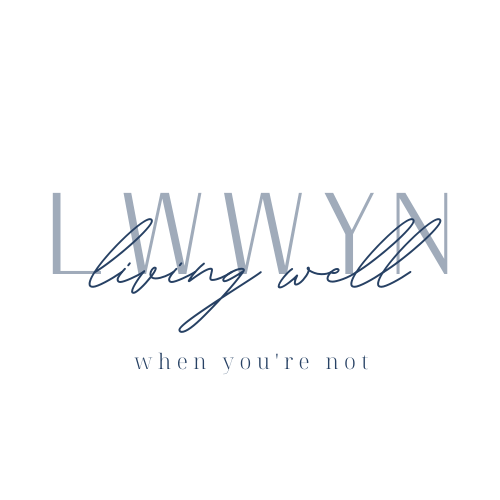Healthier Than Ever
I’ve had lots of alone time because of my illness. During that time, I’ve mined my life for the things that hold me back from being my authentic self, the person beyond the circumstances of my life. When you have a chronic illness, you often have no choice but to find that person, even if you do it kicking and screaming. As cliché as it sounds, I started with my childhood to begin to piece together what shaped my view of myself.
There is no denying that I watched a lot of TV growing up. A lot, meaning as much as my parents would allow and as much as was available on three channels and the occasional fourth when the UHF antenna worked. Lately, I’ve found myself tuning in to the MeTV channel. I’m drawn to the shows of my childhood that aired during the late 1960s and ’70s, like Bewitched, The Mary Tyler Moore Show, and The Brady Bunch. The theme songs stir up nostalgic feelings, and I actually get misty-eyed listening to them. For me, these shows represent more than just entertainment from the past. They take me back to the nights when Dad rolled the rabbit-eared black and white TV into the living room, and the five of us, Mom, Dad, my two brothers, and I sat on the long, brown and gold floral sofa and watched our favorite sitcoms. It was the time after dinner when the dishes were done, the baby was asleep, Dad was home, and all was right with the world. Things were predictable, safe, and comfortable, unlike the life of someone living with chronic illness. While my life before illness was good, it wasn’t perfect. I have to be careful not to idealize the life I had and get stuck wishing to have it back.
As I watch these iconic shows as an adult, I view them through the prism of experience instead of the impressionable mind of a child. It’s clear that subconsciously, they shaped my view of who and what I was supposed to be when I grew up. I was supposed to be the beautiful Samantha Stephens – the quintessential suburban housewife who hid her talents so her husband could feel good about providing for the family. I was supposed to be Mary Richards– the smart, stylish career woman who didn’t make finding a man or getting married a priority, yet still made coffee for the office and did lots of typing. I was supposed to be Carol Brady – the woman whose family was the center of her life, who volunteered for the PTA, and who never got flustered in the face of all that comes with raising six children.
During the first half of life and before my diagnosis, my choices and angst were largely based on the image I had created of myself, for myself. The three-headed monster, Samantha-Mary-Carol, was doomed from the start. The conflict within me was sometimes overwhelming. Who could possibly be all of those women? Who wants to be? I didn’t have scriptwriters who resolved all problems and conflicts in thirty minutes. Sure, I could rattle off that I was a teacher, the mother of two beautiful girls, the wife of a successful husband, and a church volunteer. These roles didn’t ensure that life wouldn’t get messy and that I wouldn’t make mistakes. My unconscious comparison of myself to an impossible standard often set off shame storms, as author, researcher, and teacher Brené Brown calls them, and a further striving for an unattainable ideal. This unexamined view of myself made the reckoning that came when I got sick that much more acute.
Living with chronic illness made me realize that my hermetically sealed view of my life needed to be blasted open. I knew something had to change when my face grew hot and red, and my heart raced whenever someone asked, “What are you going to do now that you’re not teaching and your children are grown?” I felt as if I had to justify my very existence. To say I had an identity crisis is putting it mildly. I was tempted to identify myself as the sick woman. That would be easier than redefining myself and figuring out what makes me happy. After all, no one expects much from someone with chronic health issues. That’s not who I want to be. I’m not pretending that my health problems don’t get the better of me sometimes, but I will not let them become who I am.
The emancipation from my prescribed roles has been scary and freeing at the same time. I don’t know what I’ll do or be, but whatever it is, it will be about what makes me happy, not about supposed to. I guess the wistful feelings that come when listening to those old theme songs are a way of letting go of the me that was and jumping, without the parachute of perceived certainty, to the me that will be. I don’t pity my younger, healthier self. I thank her and bless her for doing the best she could and allowing me to continue growing. Take the “gift” of chronic illness that your body has given you and let it change your heart and mind.



